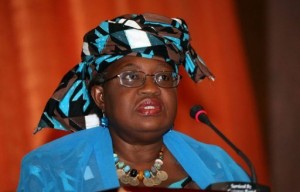Recurrent Budget Expenditure Experiences New Highs After Decade Of Democratic Rule
Recent statistics and analysis have shown that the budget expenditure at the recurrent level, has increased astronomically since Nigeria returned back to Civilian rule. A development that would obviously call for more frugality and caution.
In the Second republic between 1979 and 1983 the recurrent budget expenditure under the Alhaji Shehu Shagari administration also revealed a high recurrent expenditure, which contributed to the Nation’s political economic crisis , part of the reasons the Military seized power in 1983.
From the analysis the expenditure patterns have revealed fluctuations from a 47.44 percent in 1999 to an unprecedented 77 percent in 2010,s howing the excessive spending patterns of government, that has sometimes lacked the frugality and prudence needed to ensure stabilization.
Governor Lamido Sanusi has been speaking on the trend in the nation, and has been advocating ruthless cuts in public sector and restructuring to tackle waste and excesses.
Finance Minister Dr Ngozi Iweala speaking at the 2012 National Economic Summit on the issue of recurrent expenditure, stressed the fact that “The government expects to reduce recurrent spending in 2013 to 68.8 percent from 77 percent in 2010.” If this is achieved then the Nation will experience some level of a balanced budget, which is key to economic sustainability.
One of the challenges in the recurrent expenditure trend has been the high cost of maintaining the National Assembly, which is rated amongst the costliest in the entire globe. Several years ago Governor Sanusi stood before the National Assembly to defend his claim that huge part of the budget has been going to the recurrent expenditure, with the legislators getting the lion share.
Mr Samir Gadio an emerging market strategist in London, believes that “the National Assembly typically tends to push higher the oil price benchmark and the aggregate amount of spending proposed by the government each fiscal year.”
The Federal Ministry of Finance report also revealed that the obsession of high spending costs by the government must be reviewed as the current international oil price volatility, reveals that the oil boom may not come every time. Thus the need to review without sentiment to the current expenditure pattern.









